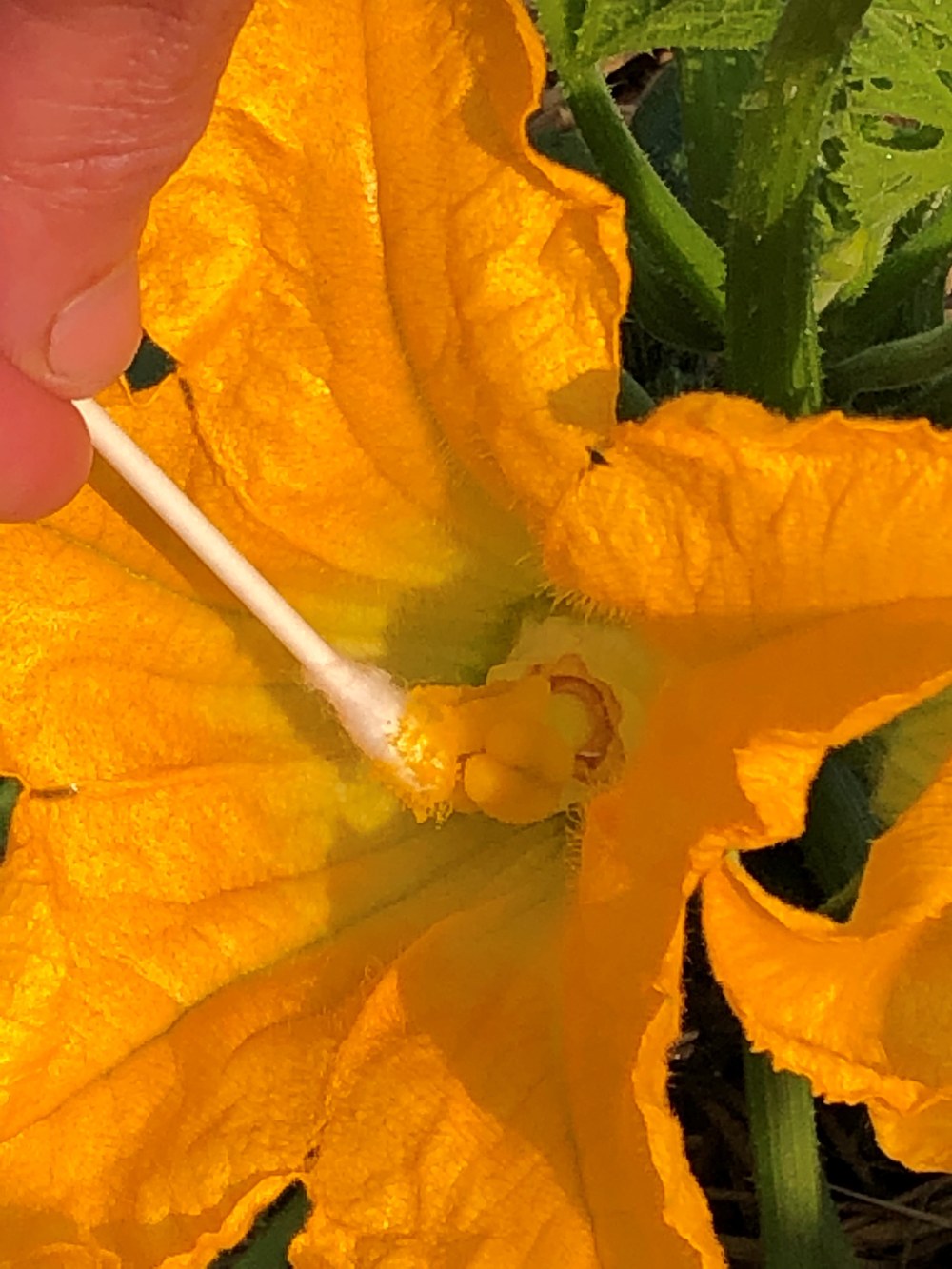Grow-Save-Repeat aims to show home gardeners of all experience levels how to save the seeds from their garden as well as how to breed their own unique varieties of fruits and vegetables through a few simple steps.

Photo by Diane Diffenderfer, Penn State
Plant Breeding for Home Gardeners
Have you ever wondered how a bell pepper and a jalapeño can be so similar but taste so different? For thousands of years, people have been cross breeding plants to create new colors, flavors, and shapes of our favorite fruits and veggies. Today, some people have entire careers creating new varieties of fruits and veggies like honeycrisp apples and buttercrunch lettuce, but you don't have to be an expert to be a plant breeder in your own garden. All you have to do is Grow, Save, and Repeat!
What is the Grow-Save-Repeat project?
Grow-Save-Repeat (GSR) is a partnership between the Penn State Extension Master Gardener program and Dr. Sarah Dohle of Delaware Valley University. For several years, Dr. Dohle has been working with peppers, tomatoes, lima beans, and winter squash for her Participatory Plant Breeding Program, which is a collaboration between farmers, chefs, and DelVal to develop regionally-adapted unique varieties of produce.
County Master Gardener programs participating in GSR host demonstration garden plots with trial plants from Dr. Dohle's breeding program and continue the breeding process using simple tools and easy steps. Home gardeners are encouraged to visit these sites to see how they can try these techniques in their own vegetable gardens.
What all happens at a GSR demonstration plot?
Master Gardener volunteers observe and sample the trial plants in their plots for differences in growth and taste, while also practicing cross-pollination techniques to develop their own plant breeding skills.
At the end of the summer, Master Gardeners look back through their data to pick their favorite plants from each of the species in their Demo Gardens. Master Gardeners then collect, clean, and store the seeds from the fruit of their favorite plants.
Next year (in 2023), the Master Gardeners will plant this new generation of seeds back in their demonstration plots and start the process over again. After several years, participating programs hope to have a variety of each species specially adapted to their location and demonstration garden.
To Learn More
Check back here in late spring 2022 for a list of participating counties! Counties with test sites will provide a variety of educational opportunities related to the project.
For questions in the meantime, contact our project leaders Diane Diffenderfer (dzd5229@psu.edu) and Casey Clauser (cmc7444@psu.edu).

